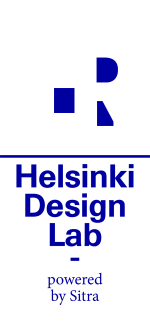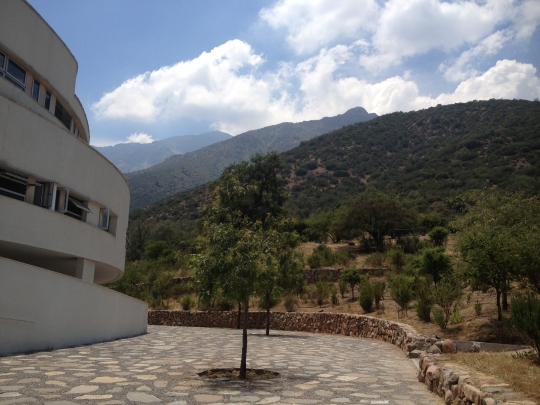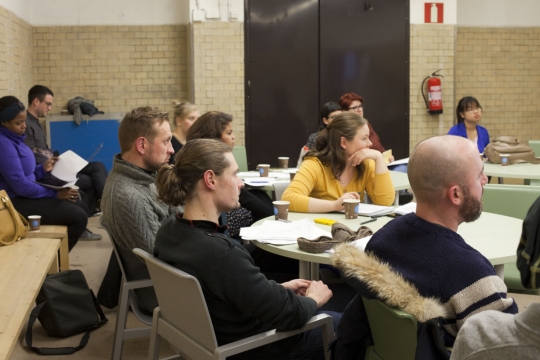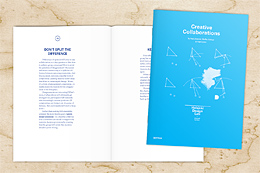In another window I'm working on a draft of the feedback form we will send to the 12 Open Kitchen participants. That makes this weeknote a procrastination technique. Again.
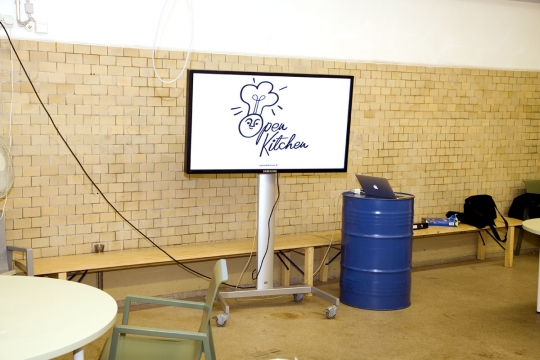
A snapshot from the opening of Open Kitchen. And a bunch more photos below. Photo: Matti Tanskanen
We've been heads down these last three weeks.
Maija and I are working on a publication to wrap-up the work on Brickstarter. Sitra's not in a position to build the whole platform ourselves at the moment (though we are probably building a nano-micro-proto), so we're transferring our momentum there into a publication that coalesces three things: urbanism, governance, and emergent initiatives (or perhaps Peer Progressivism?). The goal of the publication is to simmer down our blog a bit and prepare a limited primer on these issues that will hopefully benefit anyone interested in building a platform to support bottom-up urbanism, and perhaps people who are using such platforms to build the city.
A recent call with Dan Parham, co-founder of Neighborland, helped clarify my thinking around the next steps for Brickstarter. As Dan Hill and I have always tried to emphasize when showing the Brickstarter mockups, the ideas are not the hard part necessarily, so I've been a bit embarrassed by the press our project has received because the attention should really be directed to Neighborland and others who are putting the ideas into practice.
Since we don't have a live platform we haven't been prototyping with users, but we have been prototyping with another group: civil servants. The reason we jumped right to high resolution mockups is so that they're plausible, and perhaps even a little scary, when we show them to our colleagues in city hall and elsewhere. Part of our challenge has been to find a language and a narrative that helps the public sector recognize the potential "threat" of citizen-initiated urbanism, and in doing so help them lean into it, rather than shy away. Because, of course, it's not a threat at all—quite the opposite. We're getting close to having an agreement with a town in eastern Finland to put a subset of the Brickstarter ideas into practice.
After talking with Dan, I'm retooling my thinking on the publication a bit and focusing more on how our work might offer a language and narrative that helps others build the connective tissue between government, citizen groups, and the technologists who build collaboration platforms. If we can do that, I would be very happy.
We've brought in Rory Hyde to help us as an editor for the Brickstarter wrap-up. It's great to have him, not only because his own work on unsolicited architecture overlaps with Brickstarter, but because he also brings structure to our work. Thanks to Rory's careful work on the table of contents and overall structure I'm now hyper conscious of the fact that our introduction is 35% too long. Time to lose 1000 words. This is my favorite part (really).
Maija's working on some text to summarize the Fact Cards, as well as a set of diagrams that map them out relative to each other. We'll crunch on this right up till the end of the year, but I'm resolved to have the final draft of the manuscript done by the new year.
Marco was in Chile to give a talk at the Architecture Biennale there, and a number of other things. He reports back that it's an exciting moment in Chile, but then again readers of this blog know that we're fans of the strategic design work happening in that country.
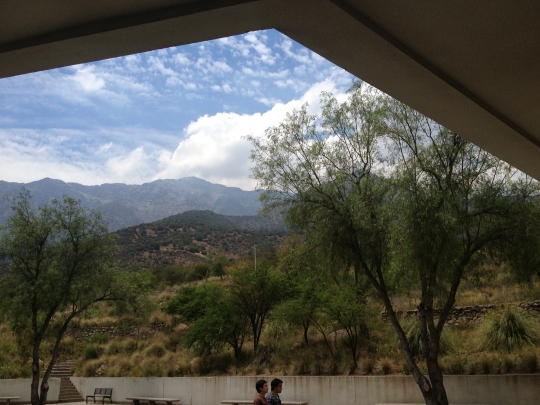
Marco was quite happy about summer in December.
Justin was in town for a week, wherein he and Marco spent a good portion of it sequestered in a conference room hashing out a publication on Low2No. With that project transitioning to our market partners VVO and SRV this is a good moment to step back and reflect on what we've learned. That's the gist of the book, but I'll let Justin introduce it more properly when things are more fixed.
Somehow without trying to we've become a publications house. I'm glad that words are a renewable resource, or we might be in danger of using them all up.
Open Kitchen launched on December 3rd, but I think it's best to start with this, a new video that Kalle and I finished to coincide with the launch:
The Facebook page for the project is the best place to get a sense of how things have been going. Our participants spent about 1.5 weeks learning from experienced food entrepreneurs around the city, then the second 1.5 weeks have been dedicated to figuring our a shared restaurant concept and putting that into motion. Last night I had my second meal at Open Kitchen and it was—forgive me for bragging on behalf of the group—excellent! I'm really proud of what the participants have put together.
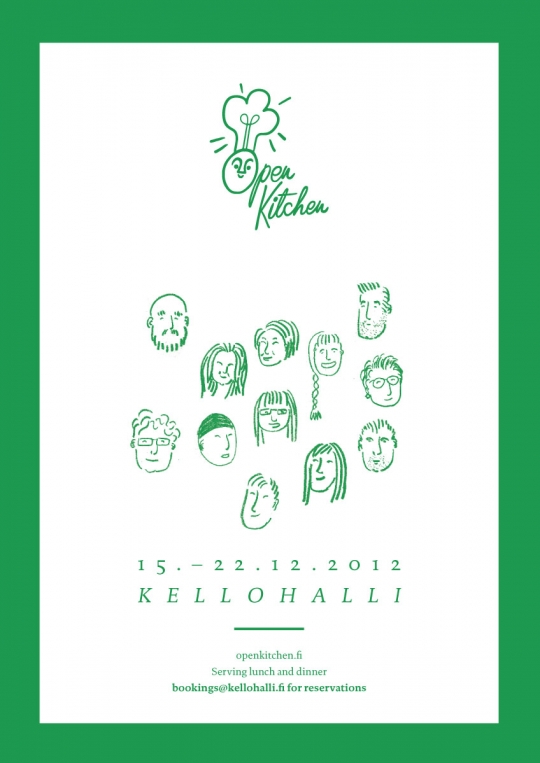
Inka Kosonen and Mari Sollman, two Aalto University Masters students, have been working with the team to create and execute a visual identity for the materials and interior at Open Kitchen… all in 3 days.
With things running more or less smoothly, we're now turing our focus to next steps for the programme. In January we'll be hosting some sessions to see if we can match the programme with a funder who would be interested in taking it forward on an ongoing basis. From this perspective, we've treated Open Kitchen as a mechanism to produce evidence. It is testing the viability and usefulness of a 3 week course as well as proving the market for such a thing. Sitra has taken the upfront risk in hopes that we will find a partner to carry it forward. That's always easier with even a modicum of evidence.
There will be more to say, but for now I'm going to end this post with some photos that document the first 2 weeks of Open Kitchen.
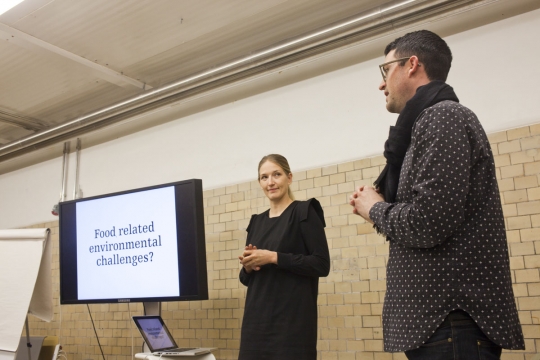
Tuuli Kaskinen of Demos Helsinki talking about food sustainability.
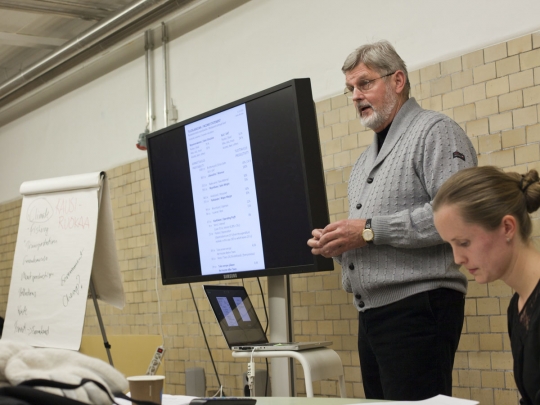
Aimo opened his first restaurant for the Olympics in 1952.
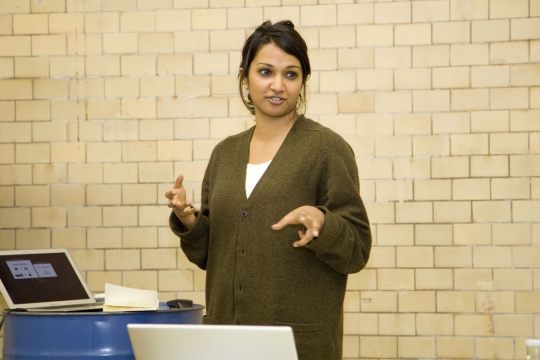
Cynthia Shanmugalingam of Kitchenette talks about food trends in London. Photo: Matti Tanskanen
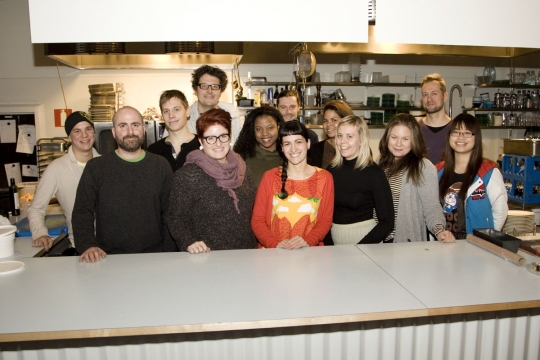
The team! Photo: Matti Tanskanen
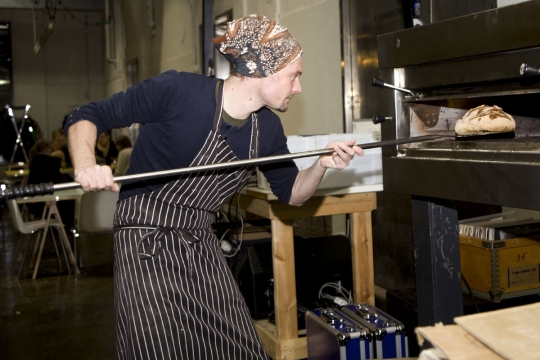
Jérôme putting bread in the oven. Photo: Matti Tanskanen
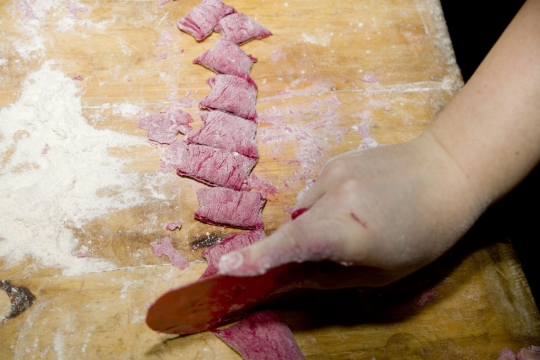
Beetroot gnocchi in the making. Photo: Matti Tanskanen
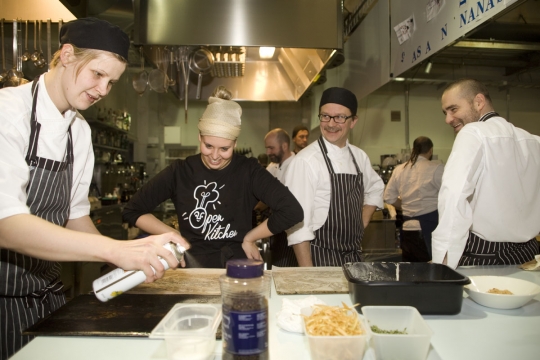
Saila working with the Marrot team in the kitchen. Photo: Matti Tanskanen
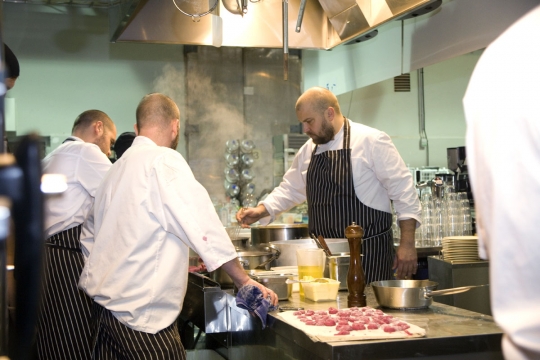
Antto doing this thing. Photo: Matti Tanskanen
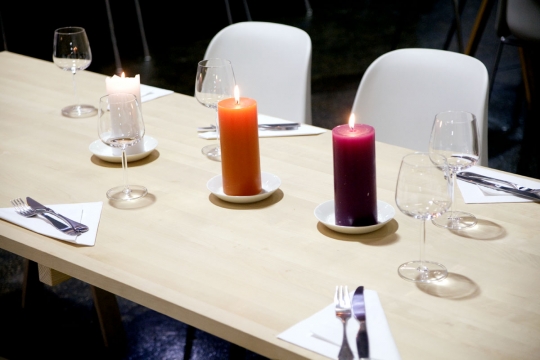
A simple, pleasant nordic interior. Photo: Matti Tanskanen
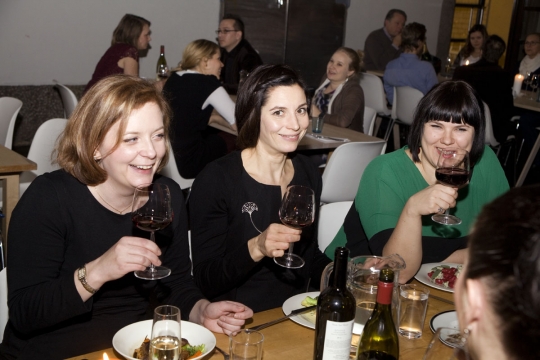
Happy customers! Photo: Matti Tanskanen
Between all of this, Marco, Justin, and I have been finalizing the goals for HDL 2013. I think we have a shared understanding of the goals now, but more on that in the new year.
